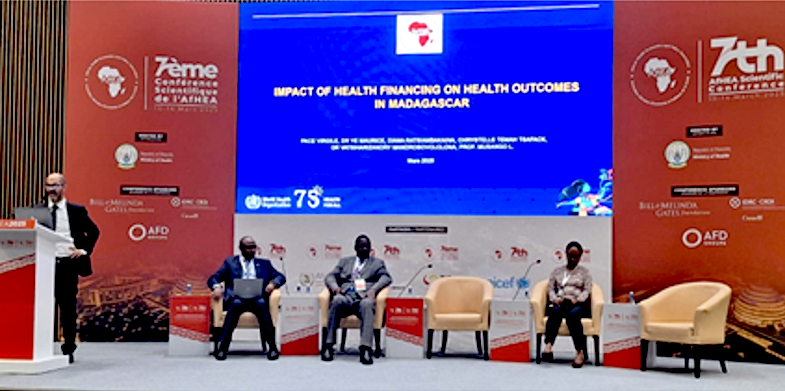The African Health Economics and Policy Association (AfHEA) organized its seventh biennial Scientific Conference from 10 through 14 March 2025 in Kigali, Rwanda. Serge Mayaka and Virgile Pace, both multicountry assignment team experts and P4H country focal persons (P4H-CFPs) contracted by the World Health Organization, made substantial contributions.
During the preconference, organized by the World Health Organization (WHO), Serge Mayaka participated as a panellist in the session called “Policy learning on health financing for universal health coverage: could we do better?” This session addressed the persistent obstacles that hinder the integration of knowledge into the implementation of health financing reforms. Financing fragmentation and a lack of coordination between stakeholders were identified as obstacles to aligning efforts with national priorities. In this context, the P4H Network was praised for the vital role it plays in providing knowledge sharing and networking among stakeholders.
At the main conference, Serge presented on the experiences of Côte d’Ivoire, Guinea and Mali with the Health Financing Progress Matrix. The presentation illustrated how this tool can guide the development of more coherent financing policies, promote ownership and stimulate constructive dialogues between technicians and decision makers.
The Malagasy team, led by WHO representative Laurent Musango, moderated a panel on primary health care financing and the promotion of community-based health insurance (CBHIs). Two other presentations were made: one on the human losses associated with COVID-19 and the productivity losses likely avoided through COVID-19 vaccination; the other on the implementation of mass drug administration for lymphatic filariasis and the effectiveness of integrating this activity into an existing polio campaign.
Virgile Pace, P4H country focal person in Madagascar, presented on the impact of health financing on health outcomes in Madagascar. He provided an update on the current situation, identified the main challenges and analysed the reforms underway. Discussions among participants revealed many similarities in the difficulties encountered, particularly with the crowding out practice, which limits domestic resource mobilization.


